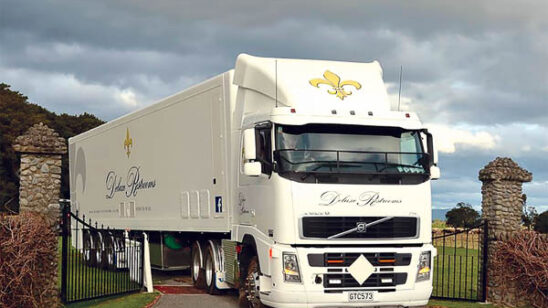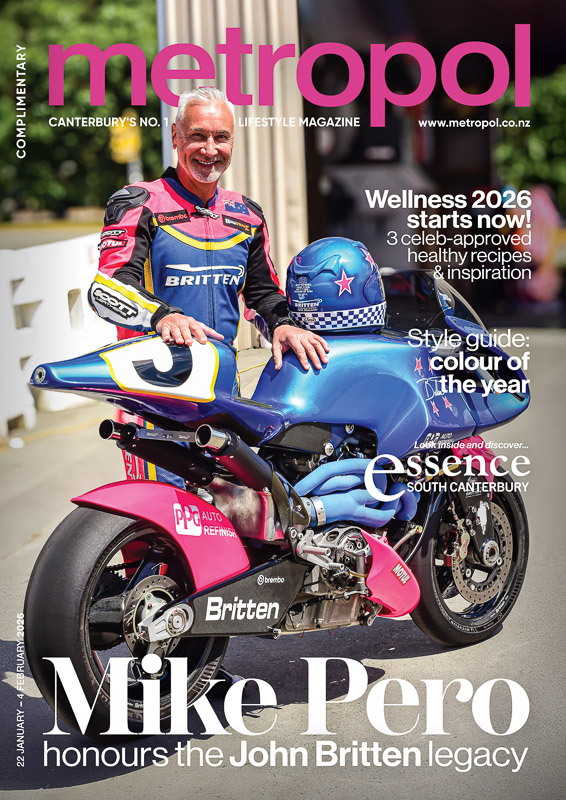
The Psychology or Performance
Gilbert Enoka has been charged with keeping the All Blacks emotionally fit for the past 19 years, while off the field, he has spent 10 years as the General Manager of Harcourts International. So when it comes to getting the top performance from his people both off and on the field, Gilbert is at the top of his game.

He is joining All Blacks nutritionist Katrina Darry, and author, journalist and television current affairs presenter Miriama Kamo on 13 June for Inspiring 2019 at Addington Raceway, where they will talk resilience, mental and physical health and wellbeing. We caught up with Gilbert to discuss how to stay at the top of your game – both personally and professionally.
What attracted you to sports psychology?
I’m a self-confessed sportaholic. My first dabble into sport was volleyball; I became a player and then a coach, representing New Zealand for 10 years in the game. It gave me the drive to get better, both for myself as a player and for the greater team, which led me to the mind space and recognising that the brain can inhibit performance and fuelled my interest in the people side of sport.
How critical is the mental side of sport?
I work as part of a quality management team, so I am just one spoke in the talent management wheel. The mind always gives up before the body, so it’s pretty paramount when it comes to performance. Most people have an understanding that to train they have to sweat, so if they’re not sweating, they’re not training. When they want to improve their strength, they go to the gym three times a week and train for it. The way I see it is, if you want to improve your mental ability when you’re under pressure, why wouldn’t you apply the same principles to give you the ability to perform more consistently in that space? However, it needs to be noted that it is important not to overplay the ‘mental’ hand. It is important that you still do the physical work; you can’t plough a field by turning it over in your mind.
Without giving away all your secrets… what are your key strategies when it comes to getting athletes and business people performing at their very best?
I think the first thing is to understand that nobody is born with the ability to perform under pressure; it’s learned. There’s not one big secret; rather there’s lots of little skillsets. It’s about understanding the individual and the relationship they have with pressure in a given moment and then enable them to unpick that and give them control when they encounter pressured situations. When you get that level of awareness, you can recognise when you’re in a state that restricts you from peak performance and once you recognise it, you can do something about it.
How important is stepping back from the core activity and recharging the batteries?
In today’s world, both in sport and business, it’s integral. People get tough by exposing themselves to waves of stress and waves of recovery; it’s how you get resilient. In today’s world you get the stress without the recovery and that’s how you get burnt out. It’s not the load that breaks you down, it’s the way you carry it. We want people to schedule deliberate recovery activities in your day or in your week, where you get away from the compression of your environment. When you understand that resilience is a set of skills, not a personality type or disposition, then you can become purposeful about things you need to put into your environment to ensure you perform well.
How can people take failure and turn it into a positive?
It’s purely a mindset thing. It’s about how you view the situations you encounter, the happenings that come upon you as a result and the challenges you have. There’s a saying, ‘it’s good to forget the things that have hurt you, but never forget what they taught you’. I’ve had a lot of experiences in both life and sport that have hurt, but they’ve taught me wonderful lessons. So it’s about what ‘return’ can you get from those experiences should you encounter them again. Failure can then be viewed as a gift that informs future actions and outcomes. It’s about being courageous. Comfort ages you; people search for comfort, but comfort is not the place where great things are achieved. It’s about being courageous and getting out of your comfort zone. Failure through the right lens can ignite things in other areas that can have a really big, positive impact.
How excited are you for the Rugby World Cup this year?
It is such a privilege to work with this wonderful team; Steve Hanson, Ian Foster, the whole management team, both the men and women in our management team that leave no stone unturned and work exceptionally hard. I often think, if only the country knew just how much work that team puts in. I love firsts, new horizons and things people say can’t be done; this opportunity ticks all those boxes. It rocks my socks!
What do the next 12 months have in store for you?
Only the master knows that! My focus is on the huge opportunity in the back half of this year and I’m going to continue to work hard delivering my role, along with our magnificent management team. I’m a great believer in fate. I haven’t chased opportunities. I feel I’ve been where I’ve needed to be when I’ve needed to be there and that’s kept me with this magnificent team for 19 years, which is such a privilege. My responsibility right now is to do my bit to continue to enhance this great legacy and deal with what’s in front of me. What happens after that will present itself in due course.



